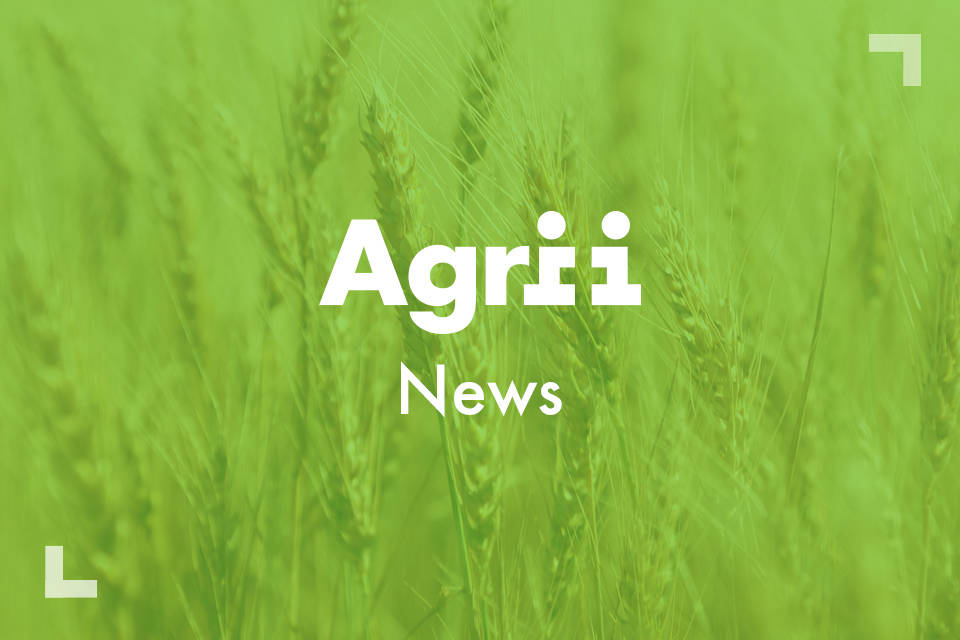
YEN Zero: Results from Year 1
News - 13.09.22
What is YEN Zero?
The Yield Enhancement Network – or YEN – is an ADAS initiative that connects agricultural organisations and farmers who are striving to improve crop performance.
Networks are open to any interested individual or organisation – commercial, academic or other. YEN networks exist to help any member from the UK, Europe or beyond to close the gap between their current and potential performance.
Yen Zero is the latest in the YEN family, looking at benchmarking the greenhouse gas emissions (GHG) of UK crop production.
YEN Zero Year 1 – what have we learned?
The four farms from our Green Horizons Farmer Network, which took part in YEN Zero Year 1 - figures show annual rainfall.
This year, four growers who are part of our Green Horizons network, each entered 6 fields into the scheme from the 2021 harvest. From a total of 51 growers in the project, we received some very positive results on how each crop performed compared to the average.
The systems used on each farm varied considerably, from plough to direct drilled based systems, to the integration of livestock or organic manures. Each location provided a series of different results affected by both inputs and environmental factors.
Summary of key findings:
- Confirmation that yield is a vital component determining the GHG intensities per tonne.
- Nitrogen sourcing, application method and the use of inhibitors play a large part in the crop’s emissions.
- The use of organic manures v. mineral nitrogen ad discussion over which has the lowest GHG emissions (see below for more info)
- Cultivation strategies and crop residue management can alter your final footprint.
- The different methods of building soil organic matter over different timeframes.
- The impact of the climatic conditions on nitrous oxide emissions.
Organic manures versus mineral nitrogen
There has been a lot of discussion around the use of organic manures over the past 12 months, for both economic and environmental reasons, as well as the long term benefit these materials have for building soil carbon. In relation to GHG emissions, there is still a lot to be understood about organic materials.
The main factor being understanding and accounting for emissions from the source through to harvest. Mineral nitrogen products are now carbon accounted per kilogram of nitrogen from raw material to farm gate, and those figures are reflected in the various carbon calculators.
However, it is difficult to account for the source of organic materials when calculating the carbon footprint. For example, was it produced on the farm or imported? If the nutrients weren’t recycled back to the land, where would they be otherwise, and would that create a higher footprint?
There are still a number of unknowns when accounting for the carbon footprint of organic materials. However, the main thing to remember is that utilising waste as a resource is very sustainable when we talk about a circular approach to food production.
If utilised correctly, there are massive long terms gains from organic materials to soil health as well. These points must be considered when reviewing the most sustainable option for nutrition on farm.
How does the regional climate affect our GHG emissions?
Rainfall - impacts on nitrous oxide
Nitrous oxide is the most potent GHG, being 300x more potent than carbon dioxide. The main source of nitrous oxide in agriculture is our soils. This includes how our soils utilise the nitrogen we apply to make it available to the crop, and the structure and biological activity of them.
The biggest realisation of the impact of climatic conditions such as rainfall on GHG emissions came from our two most northern farms in the project. Profiling winter wheat crops with similar yields on each farm, we saw a large difference in their nitrous oxide emissions.
| Bishop Burton | East Whorley Hill | |
| Annual Rainfall (mm) | 701 | 1275 |
| Nitrogen applied (kg N/ha) | 201 | 222 |
| GHG emissions (kg CO2e/ha)* | 719 | 1691 |
*Nitrous oxide is expressed as kg co2 equivalent (e)
Of course other factors will also be contributing to this difference, but rainfall is part of the equation along with application methods and field conditions.
So, what can be done? As much as we wish we could, we can’t influence rainfall. However, we can influence how our soil reacts to that rainfall.
As an example, a compacted soil lacking porosity is more vulnerable to waterlogging if drainage is restricted. Therefore, the risk of creating an anaerobic soil environment increases. Anaerobic soils are likely to release more nitrous oxide due to the impact on soil biology and the nitrogen cycle.
Summary
Reaching net zero is a target we are all working towards nationally. Agriculture, just like every other industry has the responsibility to reduce its GHG emissions.
Agriculture is however unique. Working in a natural system means we will always have natural emissions (e.g. the respiration of livestock and soil biology). However, there is potential for a reduction in our emissions, as technology evolves and science advances.
There have been a lot of key messages for the farmers involved in the first year of this project surrounding the carbon footprint of their crops.
Being a part of the ADAS Yen project continues to provide scientific data to support our Green Horizons work, and this will help us accelerate our Net Zero strategies and advise on farm.
Next year, we will continue to work with ADAS on this project, to continue to expand knowledge sharing across the industry.
Join Our Community

Agrii X
We love engaging with clients and partners. Give us a follow and let's share stories for the community.

Agrii Instagram
A picture paints a thousand words. Follow us on Instagram to see what we are up to.

Agrii Facebook
Follow us on the worlds biggest social media site for the latest news and events straight to your feed.

Agrii LinkedIn
If you are all about the business, connect with us on LinkedIn to build your network
Stay In Touch

Newsletter Sign-Up
Receive email updates on topical news and information from around Agrii and UK Farming.

Listen To Our Podcasts
Listen to the Tramlines Podcast. Fortnightly chat about agriculture and trials with your host Tony Smith.

Agrii Insights
Read essential agri intelligence for profitable farming.

Find an Event
Join us for our upcoming events and tours.




